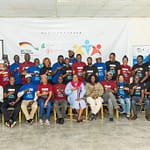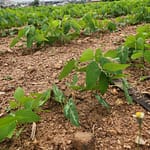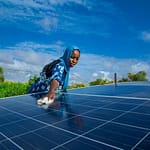At the recently concluded Tokyo International Conference on African Development (TICAD9) in Yokohama, Japan, the Japan International Cooperation Agency (JICA) and the African Development Bank (AfDB) signed a landmark $5.5 billion agreement under the sixth phase of the Enhanced Private Sector Assistance (EPSA) initiative. The deal marks the largest financial commitment under EPSA since its inception in 2005, signaling a renewed focus on resilience, private sector growth, and sustainable development across Africa.

Launched in 1993, TICAD has served as a unique platform for fostering Africa–Japan cooperation under the principles of African ownership, international partnership, and openness. Over the years, it has become a key venue for mobilizing development commitments that align global partnerships with Africa’s priorities. EPSA, created in 2005 through a partnership between JICA and the AfDB, has been central to this mission, mobilizing $12 billion in joint support since its inception.
The new EPSA deal, signed on Thursday on the sidelines of TICAD9, marks the largest financial commitment under the initiative since its inception in 2005. EPSA6 will run from 2026 to 2028 and represents an increase of $500 million from EPSA5, with a focus on private sector financing, resilience, and debt sustainability for African countries.
The Memorandum of Understanding was signed by JICA President Dr. Akihiko Tanaka and AfDB Vice President for Power, Energy, Climate and Green Growth Kevin Kariuki, in the presence of Japan’s Finance Minister Katsunobu Kato.
Dr. Tanaka noted that co-financing under previous EPSA agreements had already delivered $12 billion in support to Africa since 2005. He emphasized that the $5.5 billion target for EPSA6 is more than five times the original target set in EPSA1 two decades ago.
“This reflects the growing strength of our partnership and the increasing importance of our joint effort,” he said.
He also highlighted resilience as a new priority, adding: “With this focus we are committed to address not only climate change but also a broad range of shocks.”
Dr. Tanaka also praised the leadership of outgoing AfDB President Dr. Akinwumi Adesina, saying: “Thanks to his strong ownership and support, we are pleased that EPSA5 is now almost reaching its target of $5 billion by the end of this year.”
EPSA’s non-sovereign operations component helps finance the Bank’s private sector initiatives through a line of credit from JICA on concessional terms. Over the years, this has supported critical infrastructure projects including Uganda’s Bujagali Hydropower Plant, the East Africa Submarine Cable System, Nigeria’s Lekki Toll Road, Rwanda’s Kigali Bulk Water Supply, and Africa’s first communication satellite, RASCOM.
Kariuki reaffirmed Japan’s role as a cornerstone partner for the AfDB: “EPSA is the largest and longest-standing bilateral partnership the Bank has with any Development Finance Institution. Japan has been an early mover in supporting private sector development in Africa since 2005”
“I wish to applaud the continued commitment of the Government of Japan and JICA towards Africa’s development, and I am confident that we will consolidate the successes of development collaborations between Japan and Africa in a mutually agreeable manner.” He added
EPSA5, launched in 2023, was a $5 billion financial cooperation package. By mid-2025, it had already mobilized $4 billion, with $1.6 billion worth of projects at advanced stages, a trajectory set to surpass its target by year-end.
In his remarks, Minister Kato underscored the importance of resilience, particularly for African countries facing high debt burdens. He noted: “Africa has tremendous opportunities for significant market expansion.”
EPSA6 builds on nearly two decades of collaboration and delivery. With a stronger emphasis on resilience, it reflects a timely recognition that Africa’s growth must not only be about expansion, but also about building economies and communities that can withstand shocks.












